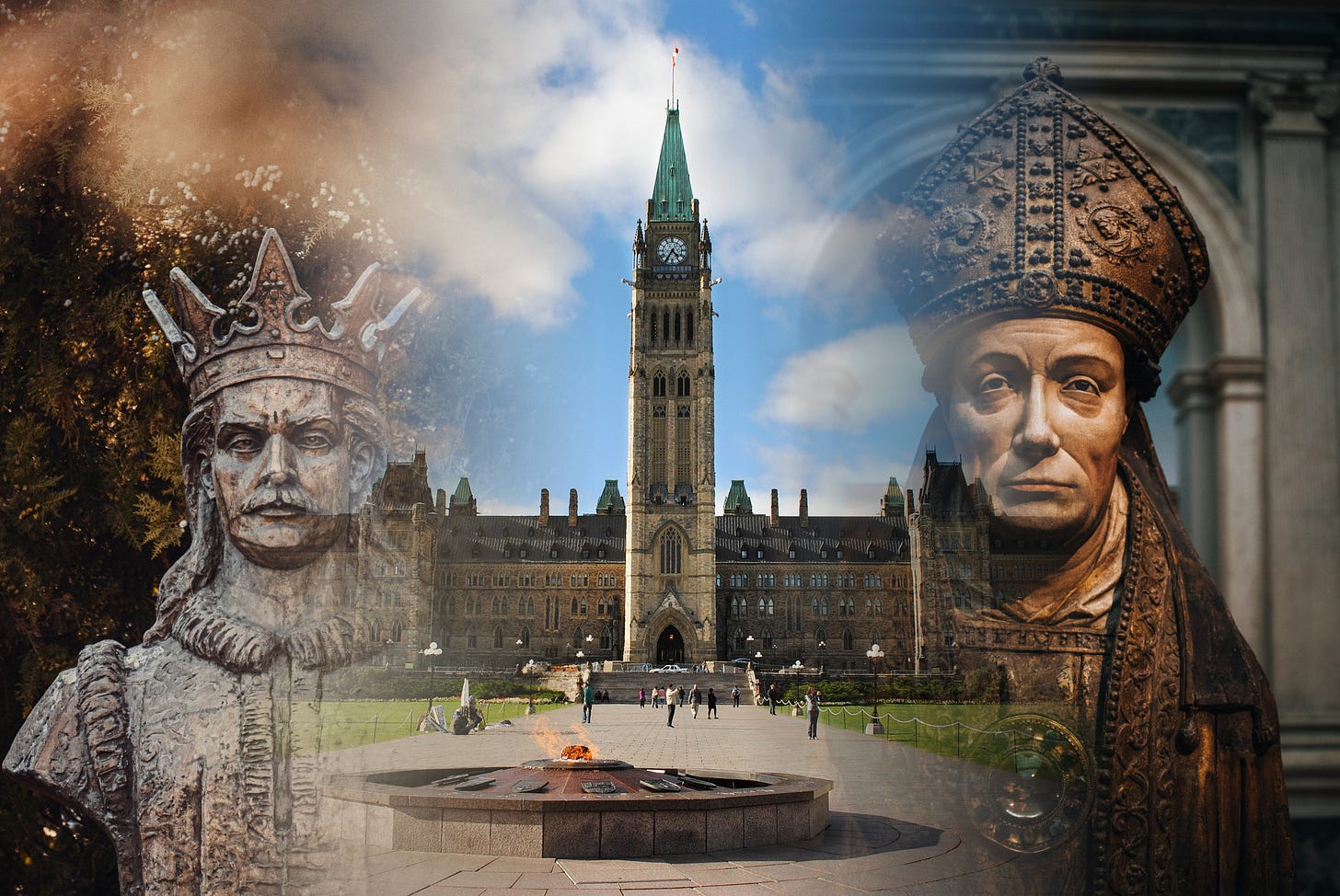Learn the truth of The Holy Place
We must present to God a clean temple and a clean body — the holy place. A clean sanctuary for God to reside is of utmost importance. A body worthy of a king.
The holy place is a must-know precept underpinning many scriptural understandings within the scriptures. One of the precepts this plugs into is “the abomination of desolation”, which is also mandatory knowledge. As a result, it is impossible to decipher the deeper meanings within the scriptures without this knowledge.
When ye therefore shall see the abomination of desolation, spoken of by Daniel the prophet, stand in the holy place, (whoso readeth, let him understand:)
The congregation is rarely found with the necessary knowledge despite it being mandatory. The preceding verses’ warning is evidence of this. Therefore, it is crucial for anyone wanting to survive the journey to God.
The Original Sanctuary
The Tabernacle and the temple were built as the houses of God for him to have a place of rest (Ecclesiasticus 36:12-13, Isaiah 66:1, Acts 7:49). “Having a place of rest” is also a precept, but it is not explored within this post.
The structure of the temple and the working roles of the Levites and priests are outlined in many passages, including:
The Temple: 1 Chronicles 28:10-21 KJV, 29 NIV, 1 Chronicles 9:10-34 KJV, 1 Kings 5-6, NIV, 2 Chronicles 2–7:10 KJV
The Tabernacle: Exodus 25-31 KJV
Both the temple and the law of Moses were given by God and outlined in the Torah (Genesis-Deuteronomy) and throughout the scriptures. However, the practices were only a shadow of things to come (Colossians 2:16-17, Hebrews 10:1).
For the law having a shadow of good things to come, and not the very image of the things, can never with those sacrifices which they offered year by year continually make the comers thereunto perfect.
Hebrews 10:1 KJV
The law is a guide, but it is used by many to disregard the heart’s compassion through the technicalities of the written word.
The Shadow, The Goal
God does not delight in sacrifices but rather in obedience and love.
10. Hear the word of the LORD, ye rulers of Sodom; give ear unto the law of our God, ye people of Gomorrah.
11. To what purpose is the multitude of your sacrifices unto me? saith the LORD: I am full of the burnt offerings of rams, and the fat of fed beasts; and I delight not in the blood of bullocks, or of lambs, or of he goats.
12. When ye come to appear before me, who hath required this at your hand, to tread my courts?
13. Bring no more vain oblations; incense is an abomination unto me; the new moons and sabbaths, the calling of assemblies, I cannot away with; it is iniquity, even the solemn meeting.
14. Your new moons and your appointed feasts my soul hateth: they are a trouble unto me; I am weary to bear them.
15. And when ye spread forth your hands, I will hide mine eyes from you: yea, when ye make many prayers, I will not hear: your hands are full of blood.
Isaiah 1:10-15 KJV
What is God’s ultimate goal, or what is of the most value to God? The rituals and extravagant structures are barriers to getting to the heart of the matter. This plays into the message that Jesus conveyed, where we worship God in Spirit and Truth rather than temples made by hands (John 4:21-24, John 2:19-22, Acts 7:48).
So what is the goal?
Kings And Priests
Priests are allowed in the holy place, and the high priest into the most Holy. Jesus, our new high priest (Hebrews 4:14-16), tore the veil through his sacrifice between the Holy and the Most Holy place. And with the removal of the veil, the priests now have access to the holiest place. But we are not priests, so how do we factor into this equation?
Doesn’t the Bible say that those who serve God are kings and priests? (Revelation 5:9-10, 1 Peter 2:9)
And hath made us kings and priests unto God and his Father; to him be glory and dominion for ever and ever. Amen.
Revelation 1:6 KJV
Jesus has made us kings and priests standing in the holy place with access to God in the holiest place through the torn veil. This position does not come without playing our part despite the sacrifice of Jesus (Leviticus 16:3-34); we must become relatives through doing the will of the Father (Mark 3:33-35) and branches on the vine (John 15:5).
To stand in the holy place, we must be clean and upright. Jesus is the good tree (Matthew 7:18, John 15), which bears only good fruits. Therefore, if anyone is unclean—a bad fruit, they cannot be a part of Jesus. You have nothing in him (Romans 8:9, John 14:29-31).
The Body, The Temple
Jesus destroyed his temple and raised it in three days. The Pharisees were confused about how he could destroy a temple that had been in the building for forty years and rebuild it in three days. They did not know he meant the temple of his body (John 2:19).
19. What? know ye not that your body is the temple of the Holy Ghost which is in you, which ye have of God, and ye are not your own?
20. For ye are bought with a price: therefore glorify God in your body, and in your spirit, which are God’s.
Our body is God’s temple—we must keep it clean. Sin makes our temple unclean, and there are no animal sacrifices for the atonement of sin (Colossians 2:14, Ephesians 2:15). Our high priest, Jesus, died so we could have unfettered access to God, and those who obey will keep their temple clean.
They shall not offer wine offerings to the LORD, neither shall they be pleasing unto him: their sacrifices shall be unto them as the bread of mourners; all that eat thereof shall be polluted: for their bread for their soul shall not come into the house of the LORD.
Hosea 9:4 KJV
A Clean Temple
The clean precept in the scriptures is summed up wonderfully by Samuel.
16. Then Samuel said to Saul, “Stop! I will tell you what the Lord said to me this night.” And he said to him, “Speak.”
17. And Samuel said, “Though you are little in your own eyes, are you not the head of the tribes of Israel? The Lord anointed you king over Israel.
18. And the Lord sent you on a mission and said, ‘Go, devote to destruction the sinners, the Amalekites, and fight against them until they are consumed.’
19. Why then did you not obey the voice of the Lord? Why did you pounce on the spoil and do what was evil in the sight of the Lord?”
20. And Saul said to Samuel, “I have obeyed the voice of the Lord. I have gone on the mission on which the Lord sent me. I have brought Agag the king of Amalek, and I have devoted the Amalekites to destruction.
21. But the people took of the spoil, sheep and oxen, the best of the things devoted to destruction, to sacrifice to the Lord your God in Gilgal.”
22. And Samuel said, “Has the Lord as great delight in burnt offerings and sacrifices, as in obeying the voice of the Lord? Behold, to obey is better than sacrifice, and to listen than the fat of rams.
23. For rebellion is as the sin of divination, and presumption is as iniquity and idolatry. Because you have rejected the word of the Lord, he has also rejected you from being king.”
Samuel declares that God is seeking obedience.
The law of God is caught up in a skirmish and declared by many as null and void due to Jesus’s sacrifice. Nevertheless, Jesus often declared that he came in the name of his Father and spoke the words of the Father. If this is the case, why would he destroy the law of God, which is to destroy the voice of God?
Suppose the law was always within the heart and not the letter? Since the Spirit sits within us, why do we need the letter? The Spirit is the Word; therefore, the letter is unnecessary.
1 Samuel 21:6 KJV, Matthew 12:3-8 KJV
Samuel’s clear exposition shows that God takes his instructions very seriously. Those instructions form the basis for the steps of those who serve him. God’s removal of Saul’s lineage as king shows that the ones who disobey are not counted as part of his kingdom—they are unclean.
Everyone who sins is breaking God’s law, for all sin is contrary to the law of God.
1 John 3:4 NLT
To be sinful is to be unrighteous and unclean (1 Thessalonians 4:7, Romans 6:19).
The Holy Place
The holy place is the temple, the sanctuary of God. There is no physical temple since we do not worship in hand-made temples. Instead, we worship in spirit and truth through obedience—obedience to God.
Would you present to earthly royalty a derelict palace? Would you present your boss with a rotten apple? God dwells in the temple, the holiest place, and would you keep that place filthy?
The temple is your body; why present God with an unclean place? Do you think God dwells in temples that are not swept?
The holy place is when you make your high place the sanctuary of God. Upon entering the holy place with a clean body, the Most High comes to you. You will understand upon making that choice to walk in the instructions of the Highest and not man.
You will understand because God will teach you.
16. When I thought to know this, it was too painful for me;
17. Until I went into the sanctuary of God; then understood I their end.
Psalms 73:16-17 KJV
Then said he unto me, Fear not, Daniel: for from the first day that thou didst set thine heart to understand, and to chasten thyself before thy God, thy words were heard, and I am come for thy words.
Daniel 10:12 KJV
Conclusion
The holy place is the temple, which is our body. The veil between us as priests and God has been torn by Jesus, our high priest, giving us unrestrained access to God through him, no longer needing any earthly intercessor.
God dwells in clean temples; therefore, to stand in the holy place, the sanctuary of our body is to stand with God. Thus, we must keep our temples clean by obeying God, which is the opposite of sin.
The goal of God is our salvation from this sinful world, harmonising us with him. Remember, Jesus told us these things:
27. Consider the lilies how they grow: they toil not, they spin not; and yet I say unto you, that Solomon in all his glory was not arrayed like one of these.
28. If then God so clothe the grass, which is to day in the field, and to morrow is cast into the oven; how much more will he clothe you, O ye of little faith?
Luke 12:27-28 KJV
27. And he said unto them, The sabbath was made for man, and not man for the sabbath:
28. Therefore the Son of man is Lord also of the sabbath.
Mark 2:27-28 KJV
These are no small words that show us that God loves us and highly values those who love him. Therefore, if you love him, keep his commandments (Exodus 20:6, John 14:15) and be as the gold tried in the fire.
God wants you!
2 Esdras 8:2 KJV, 2 Esdras 16:73 KJV





